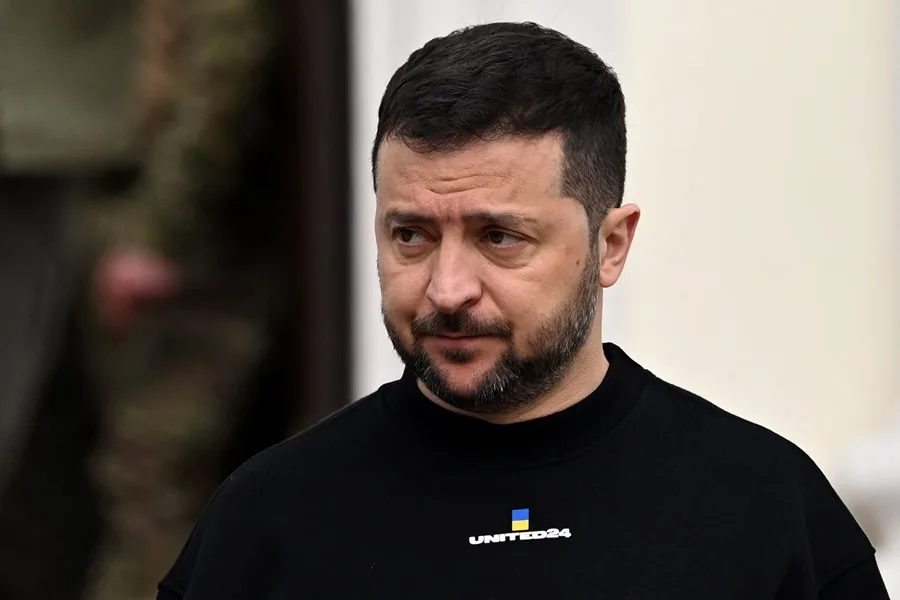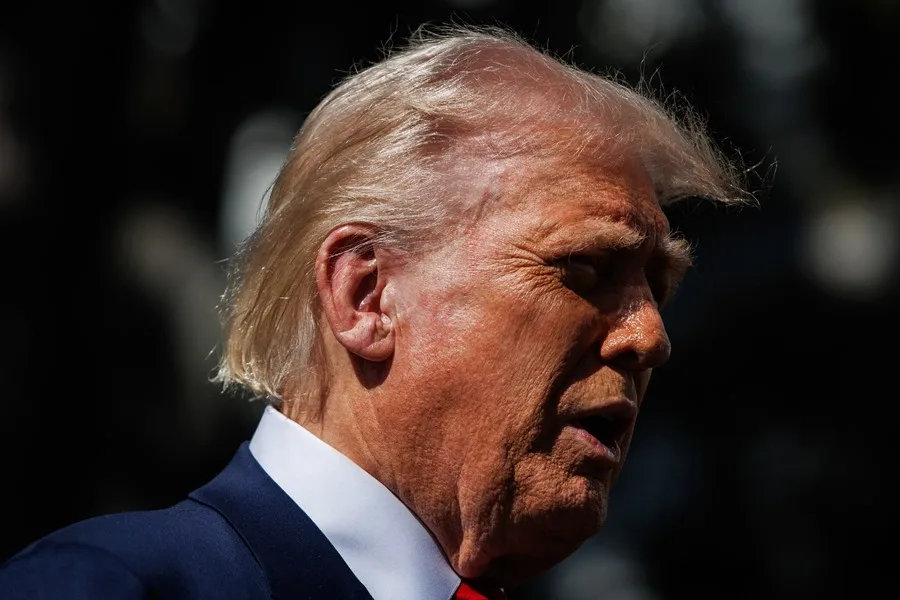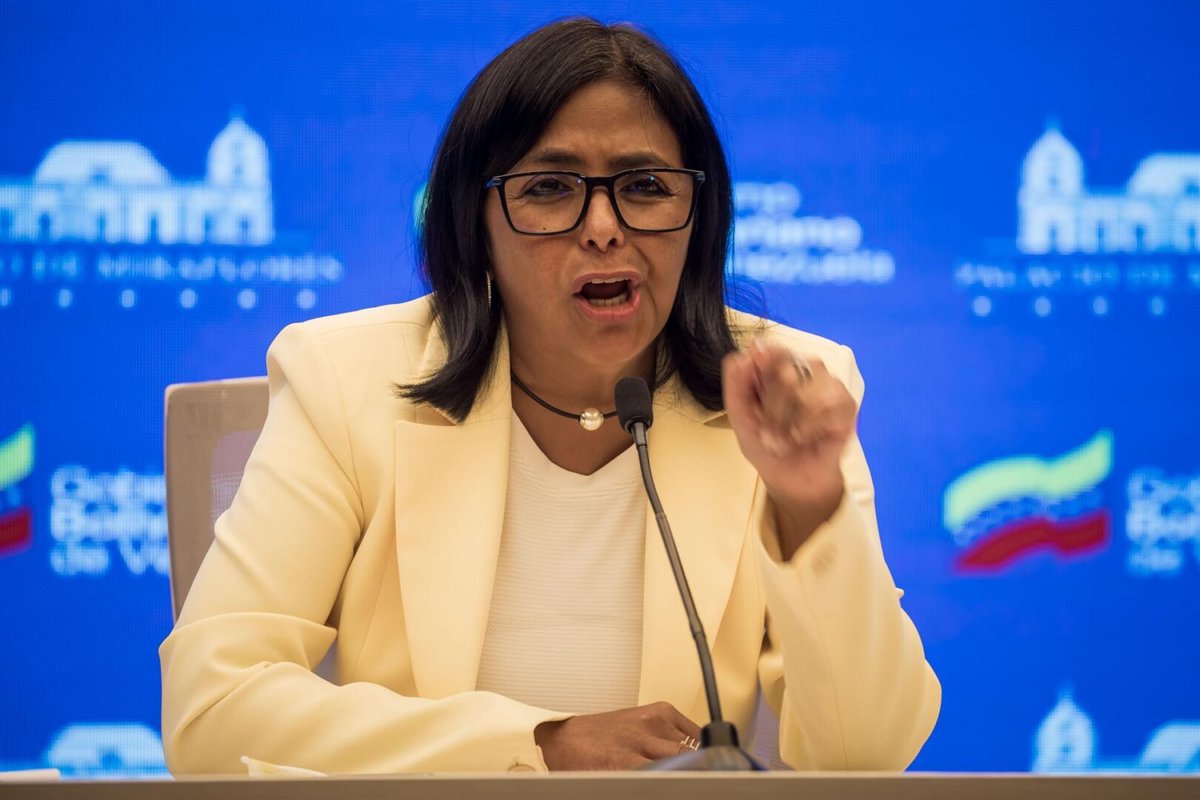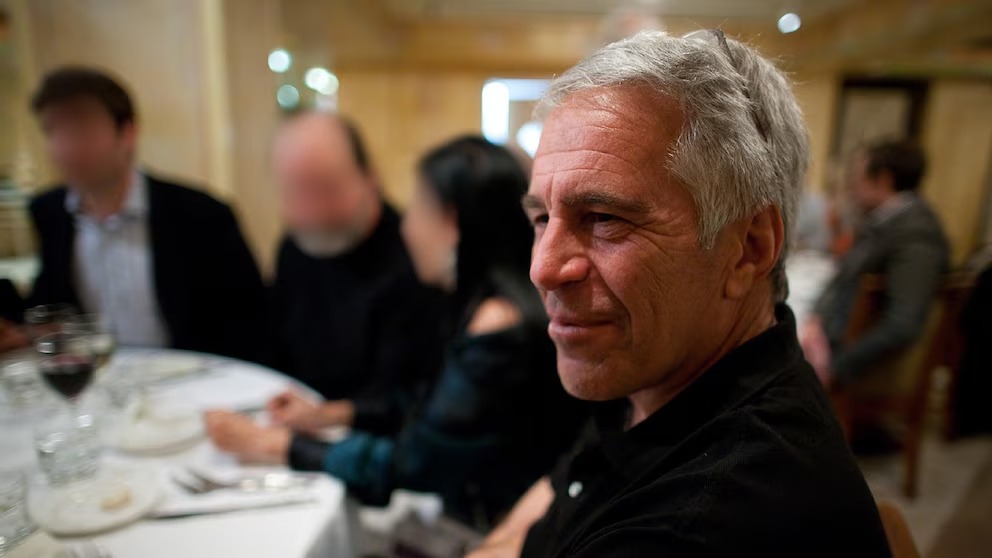International
Von der Leyen asks Zelensky for explanations for the reform on anti-corruption agencies

The European Commissioner for Democracy, Justice and the Rule of Law, Michael McGrath, said on Wednesday that the president of the European Commission (EC), Ursula von der Leyen, has asked Ukrainian President, Volodymyr Zelenski, for explanations for the controversial reform that places Ukrainian anti-corruption agencies under the control of the State prosecutor’s office.
“Von der Leyen conveyed (to Zelenski) her deep concern and asked for explanations,” McGrath said during a press conference after an informal meeting of the Council of Ministers of Justice of the European Union (EU) in Copenhagen.
The National Anti-Corruption Office (NABU) and the Special Anti-Corruption Prosecutor’s Office (SAP) are “pillars” of the rule of law in Ukraine, “crucial” for the reform agenda in that country, and must maintain their independence to be effective in their task and preserve the confidence of the population, the commissioner said.
The standards that the EC demands from EU countries and candidates for access must be “consistent”, he remarked, despite the circumstances in which Ukraine finds itself.
In addition, McGrath stressed that the approach of the accession process involves first meeting the fundamental requirements and that the path to EU entry begins with a commitment to democracy, the rule of law and a strong anti-corruption regime.
“We do not want to see a setback in the progress made by Ukraine with hard work over the past few years,” said the commissioner, who described it as “very worrying” that the two agencies may be subordinate to the attorney general, who is appointed by the president’s office.
“We expect Ukraine to fully comply with (European) standards,” said the commissioner, according to whom there can be no “commitment” in this regard.
Many NGOs denounced the passage as a process of erosion of the mechanisms of control of the Executive.
Several European ministers, including those from Germany and Sweden, have also expressed concern about the measure, which removes independence from Ukraine’s anti-corruption agencies.
Hundreds of Ukrainians took to the streets again in Kiev and other cities across the country on the second day of protests against a law approved on Tuesday by Parliament and later initialed by Zelenski that gives power to the attorney general appointed by the Executive over two anti-corruption agencies and thus deplens their independence.
Images broadcast live on Ukrainian public television show citizens, especially young people, who concentrate in squares and streets throughout Ukraine, shout slogans against corruption and abuses of power and show banners demanding Zelenski to repeal the law.
In his evening address to the nation on Wednesday, Zelenski stated that he is listening to the message he receives from the street and announced that he will propose to Parliament a bill to preserve the powers of investigative agencies while eliminating Russian influence in these structures.
Previously, Zelenski had announced that he will present a plan to fight corruption within two weeks.
The need to remove Russian influence is the reason invoked by the Security Service of Ukraine (SBU) to justify the dozens of raids against detectives of the National Anti-Corruption Office of Ukraine (NABU) carried out this Monday, which were interpreted by the NABU itself and by much of civil society as an attack on the institution.
Ukraine’s main international partners have expressed concern about both the legal reform and the SBU operation, in which two senior NABU officials were arrested for alleged collaboration with Russia.
International
HRW Warns Trump’s Influence Has Weakened Human Rights in Latin America

Human Rights Watch (HRW) warned that the political influence and rhetoric of U.S. President Donald Trump have contributed to a deterioration of human rights conditions across Latin America and the Caribbean. In its World Report 2026, the organization stated that several governments in the region have committed abuses against migrants and citizens, or have used U.S. policies as justification to impose harsher repressive measures.
During the first year of Trump’s new term, HRW observed that multiple countries violated the rights of foreign nationals under direct pressure from Washington. Other governments deepened security strategies based on militarization, mass detentions and excessive use of force, according to the report.
“The impact of the Trump administration has undoubtedly been negative in Latin America and the Caribbean,” said Juanita Goebertus, HRW’s Americas director. However, she emphasized that “governments in the region remain responsible for defending democracy and fundamental rights, regardless of who is in power in Washington.”
HRW also reported that the United States significantly reduced cooperation funding for human rights organizations and independent media. At the same time, countries such as El Salvador, Peru and Ecuador passed laws allowing the arbitrary closure of civil society organizations and media outlets, weakening democratic systems and institutional checks and balances.
The organization further criticized what it described as a “double standard” in U.S. foreign policy, which condemns human rights violations in Venezuela, Cuba and Nicaragua while overlooking serious abuses committed by allies such as El Salvador, Peru and Ecuador. The report also included criticism of the U.S. military attack against Venezuela in early 2026, warning that it could strengthen Nicolás Maduro’s regime and respond primarily to U.S. political and commercial interests.
International
Delcy Rodríguez Takes Control of Chavismo as Venezuela Enters a U.S.-Supervised Transition

With short speeches and an academic image, Delcy Rodríguez—the woman sworn in as Venezuela’s acting president—has taken the helm of Chavismo at a critical moment, as the movement seeks to ensure its survival while the country enters a phase of change overseen by the United States, putting the foundations of the revolution to the test.
Following the military operation on January 3 that resulted in the capture of Nicolás Maduro, the Chavista leadership moved quickly to fill the power vacuum and confront the new political dynamic from within the state apparatus. In this context, Rodríguez has emerged as the central figure tasked with steering the ruling movement through an uncertain transition.
Although she has held telephone conversations with U.S. President Donald Trump and Secretary of State Marco Rubio, Rodríguez has publicly insisted on Venezuela’s independence and has sharply criticized an opposition that currently lacks meaningful influence within the political landscape.
“Enough of Washington’s orders over Venezuelan politicians. Venezuelan politics must be the one to resolve our differences and internal conflicts,” Rodríguez said on January 25, while defending her proposal for a “political dialogue” with both “like-minded” and “divergent” sectors, which she had presented two days earlier.
International
Epstein Denies Being ‘the Devil’ in Newly Released Video Interview

Jeffrey Epstein claims he was the least dangerous type of sex offender and denied being “the devil” in a video interview included in the latest batch of documents released over the weekend by the U.S. Department of Justice.
The roughly two-hour interview was conducted by Steve Bannon, a former adviser to U.S. President Donald Trump, and appears to have been recorded at the late financier’s New York residence on an unknown date.
Epstein died by suicide in 2019 while in jail awaiting trial on sex trafficking charges involving minors. Since December, the U.S. government has released millions of documents related to the case under transparency laws.
“Do you think you’re the devil incarnate?” Bannon asks Epstein in the video interview revealed in the latest release.
“No, but I do have a good mirror,” Epstein replies with a smile, wearing a black shirt and glasses. When pressed again, he adds, “I don’t know. Why would you say that?”
Epstein, who pleaded guilty in 2008 to soliciting a minor for prostitution, also appears to downplay the seriousness of his conviction.
He objects when Bannon refers to him as a “Level Three sexual predator,” a classification in the United States indicating a very serious threat to public safety.
“No, I’m the lowest,” Epstein says.
“But still an offender,” Bannon responds.
“Yes,” Epstein replies.
The exchange comes after Bannon asks Epstein whether he considers his wealth to be “dirty,” suggesting it was earned by advising “the worst people in the world.”
Epstein insists that he made his money legally, while acknowledging that “ethics is always a complicated issue.”
He claims he donated money to help eradicate polio in Pakistan and India, apparently in an attempt to justify the origins of his fortune.
The documents also show that Bannon maintained regular correspondence with Epstein, who offered to help the far-right political figure spread his conservative ideology in Europe.
Since Trump took office in January 2025, U.S. authorities have released millions of pages related to Epstein, along with photos and videos.
These materials have shed new light on Epstein’s ties to high-profile business executives such as Microsoft co-founder Bill Gates, celebrities including filmmaker Woody Allen, and academics and political figures, among them Trump and former President Bill Clinton.
-

 International2 days ago
International2 days agoEpstein Denies Being ‘the Devil’ in Newly Released Video Interview
-

 International2 days ago
International2 days agoSpain Seeks to Ban Social Media Access for Children Under 16
-

 International2 days ago
International2 days agoMexico to Send Humanitarian Aid to Cuba Amid U.S. Threats Over Oil Shipments
-

 International2 days ago
International2 days agoPetro Resumes Extraditions, Sends Top Criminal to U.S. Before White House Talks
-

 International2 days ago
International2 days agoHypothermia Linked to Most Deaths During New York’s Recent Cold Spell
-

 International2 days ago
International2 days agoMexico Arrests Suspect in Shooting of Sinaloa Lawmakers
-

 International23 hours ago
International23 hours agoDelcy Rodríguez Takes Control of Chavismo as Venezuela Enters a U.S.-Supervised Transition
-

 Central America4 days ago
Central America4 days agoCosta Rica Goes to the Polls as Voters Choose Continuity or Change
-

 International22 hours ago
International22 hours agoHRW Warns Trump’s Influence Has Weakened Human Rights in Latin America
-

 Central America2 days ago
Central America2 days agoLaura Fernández Says She Will ‘Never’ Allow Authoritarianism in Costa Rica
-

 International2 days ago
International2 days agoNFL Investigating Emails Linking Giants Executive to Jeffrey Epstein


























